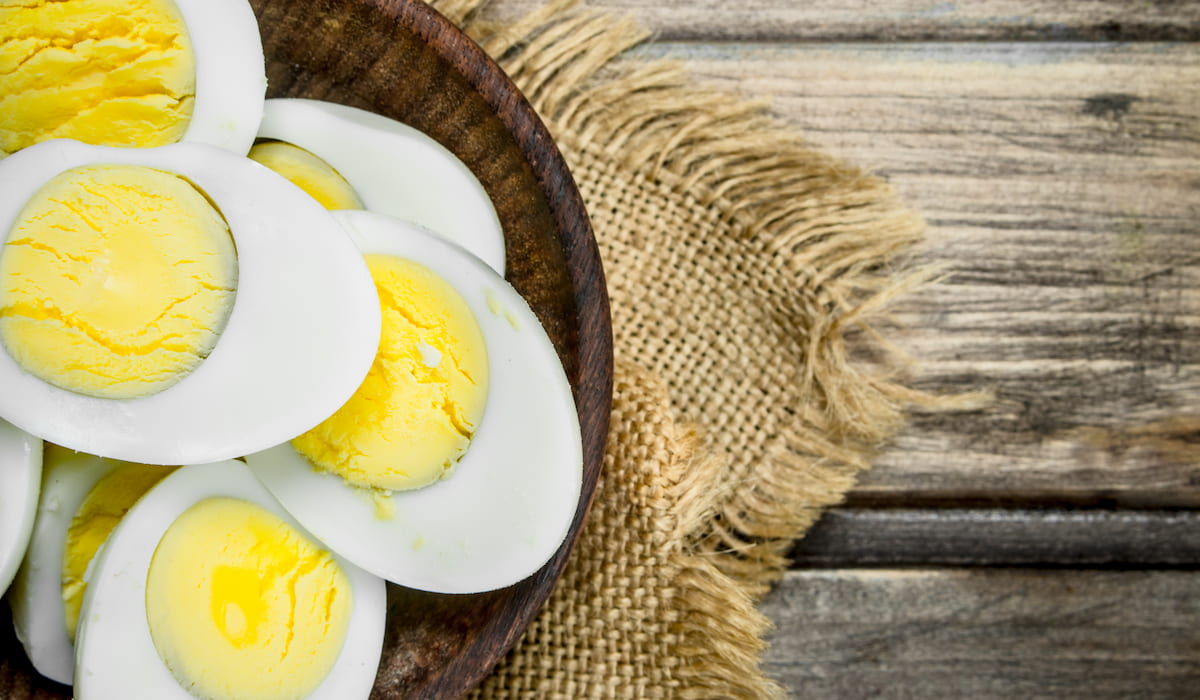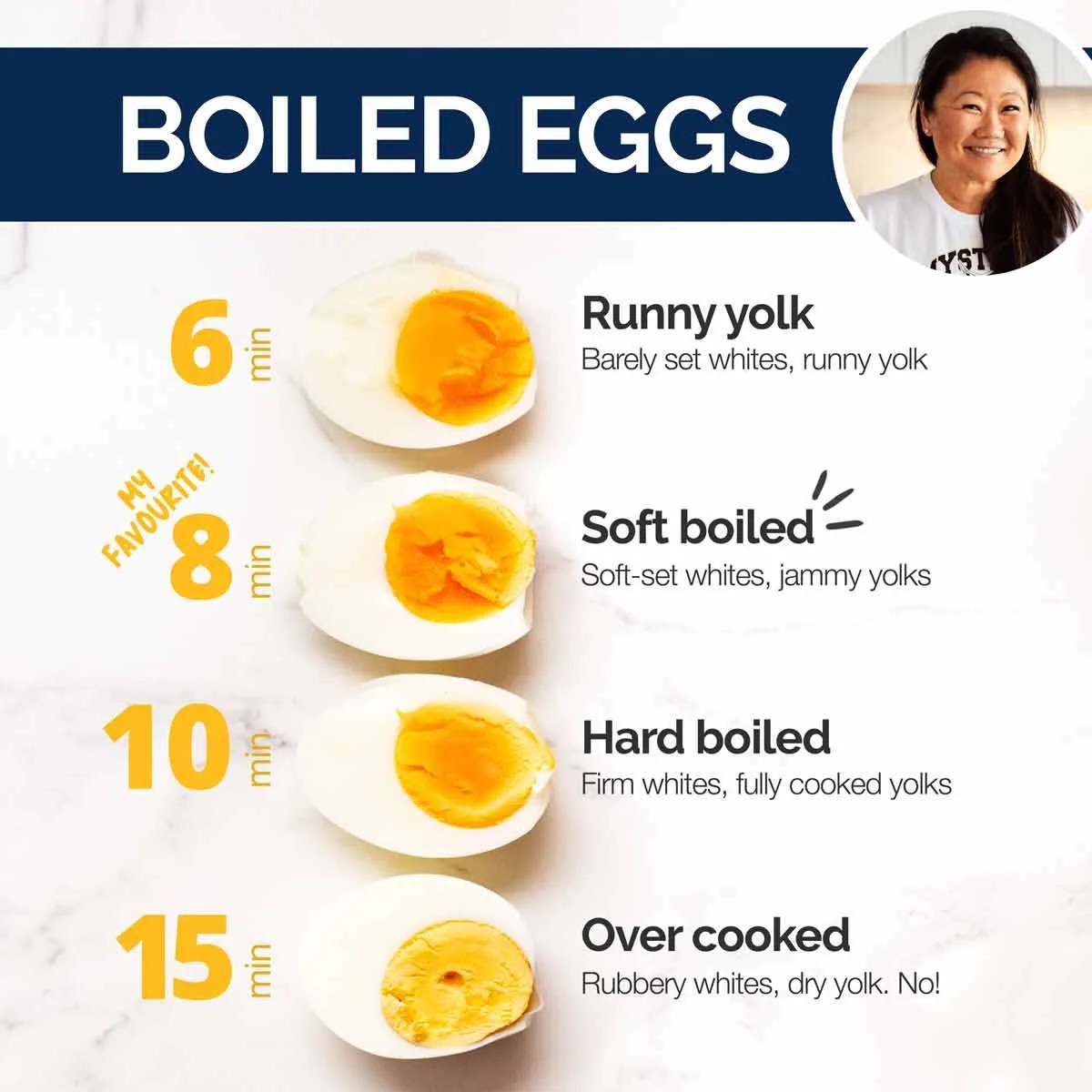How To Tell When An Egg Is Hard Boiled
Determining whether an egg is hard boiled may seem like a simple task, but it can be surprisingly tricky for many. The beauty of cooking lies in the subtle nuances that can make or break a dish, and eggs are a prime example. Whether you’re preparing a classic egg salad, a hearty breakfast, or simply trying to avoid an undercooked yolk, knowing how to tell when an egg is hard boiled is essential. In this guide, we will explore various methods to ensure that your eggs are cooked to perfection, so you can serve them with confidence.
Hard boiling eggs is a time-honored culinary skill that has been passed down through generations. It’s a technique that can enhance the flavor and texture of your meals, providing a healthy protein source that is both versatile and delicious. However, many home cooks struggle with achieving that perfect hard-boiled egg, often resulting in chewy whites and crumbly yolks. With the right knowledge and techniques, you can ensure that your eggs are cooked just right every time.
In this comprehensive article, we will delve into the various ways to determine if your egg is hard boiled. From the classic spin test to the more scientific water test, we’ll provide you with a toolkit of methods to enhance your egg cooking skills. Whether you’re a novice cook or a seasoned chef, you’ll find valuable tips and tricks that will help you master the art of hard boiling eggs.
What Are the Signs of a Hard Boiled Egg?
When it comes to hard boiling eggs, there are multiple indicators that signal their readiness. Here are some common signs:
- The shell feels cool to the touch.
- The egg has a firm texture when gently pressed.
- There is no visible liquid sloshing around inside when shaken.
- The egg's color appears uniform and consistent.
How Can You Use the Spin Test to Determine Doneness?
The spin test is one of the easiest and quickest methods to check if an egg is hard boiled. Here’s how to do it:
- If it spins smoothly and quickly, it is hard boiled.
- If it wobbles and spins unevenly, it is likely raw.
What About the Water Test for Hard Boiled Eggs?
The water test is another reliable method to determine if an egg is hard boiled. Here’s a step-by-step guide:
- If it sinks and lays flat at the bottom, it is fresh and raw.
- If it stands upright or tilts, it is older but still raw.
- If it floats, it is likely spoiled.
- If it sinks and remains stable, it is hard boiled.
Why Is Timing Important When Hard Boiling Eggs?
Timing is crucial in the process of hard boiling eggs. Overcooking can lead to a greenish ring around the yolk and a rubbery texture. Here’s how to get the timing right:
- For medium-sized eggs, boil for 9-12 minutes.
- For large eggs, boil for 12-15 minutes.
- For extra-large eggs, boil for 15-18 minutes.
What Are the Best Practices for Boiling Eggs?
To achieve the perfect hard-boiled egg, consider the following best practices:
- Start with eggs that are at room temperature.
- Use a pot large enough to hold the eggs in a single layer.
- Add enough water to cover the eggs by at least an inch.
- Bring the water to a rapid boil before adding the eggs.
How Can You Cool Hard Boiled Eggs Properly?
Cooling hard-boiled eggs is essential to stop the cooking process and make peeling easier. Follow these steps:
What Are Some Creative Ways to Use Hard Boiled Eggs?
Hard-boiled eggs are incredibly versatile and can be used in a variety of dishes. Here are some creative ideas:
- Chop them up for a classic egg salad.
- Slice them for a delicious breakfast sandwich.
- Use them as a topping for salads or grain bowls.
- Make deviled eggs for a tasty appetizer.
Conclusion: Mastering the Art of Hard Boiling Eggs
Knowing how to tell when an egg is hard boiled is an essential skill for any home cook. With the right techniques and methods, you can ensure that your eggs are cooked perfectly every time. From the spin test to timing and cooling practices, there are multiple ways to achieve hard-boiled perfection. So go ahead, crack that shell and enjoy the delicious versatility of hard-boiled eggs in your cooking!
Also Read
Article Recommendations



ncG1vNJzZmivp6x7tMHRr6CvmZynsrS71KuanqtemLyue9Cupq2do6OyuL%2BQbmahp6diwbB5056jpWWnnbKvecBmnKCfXZ7AbrTAq5tmmp%2BeuaawjaGrpqQ%3D
